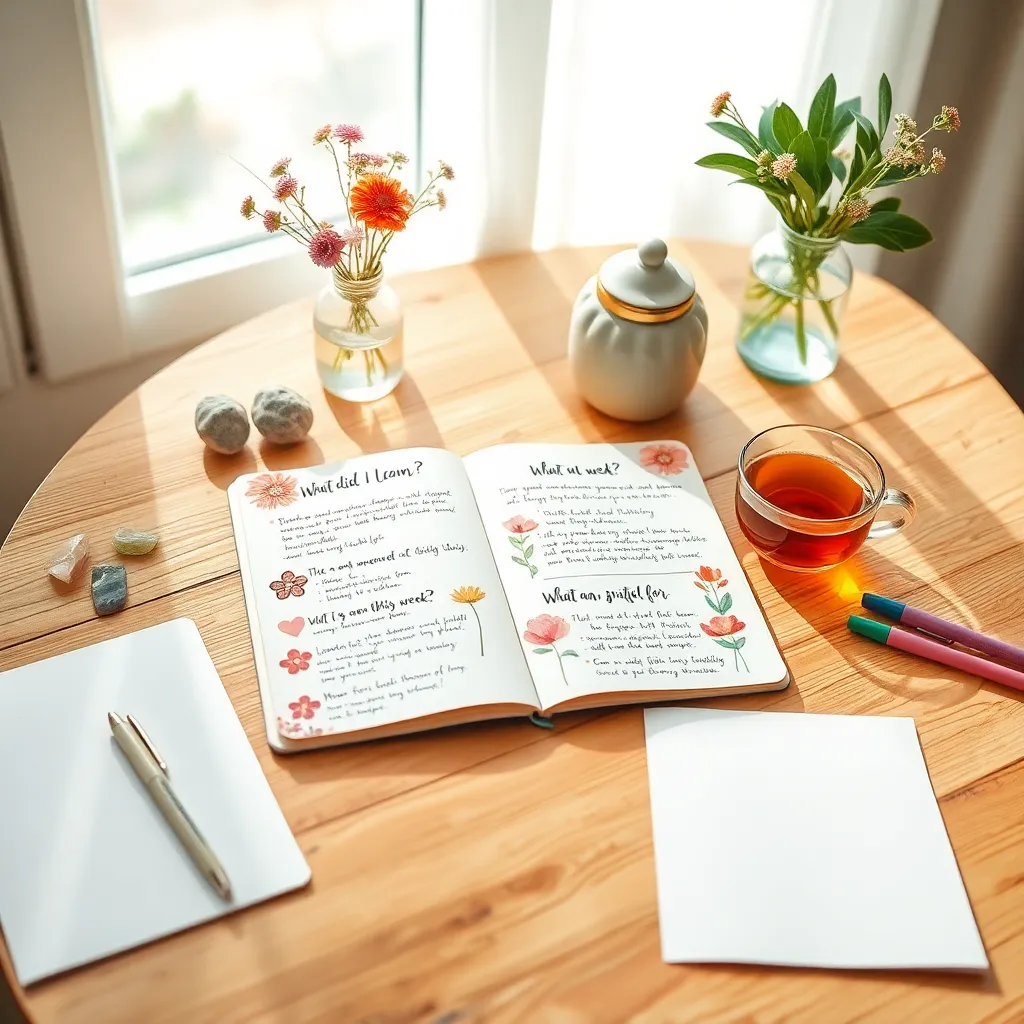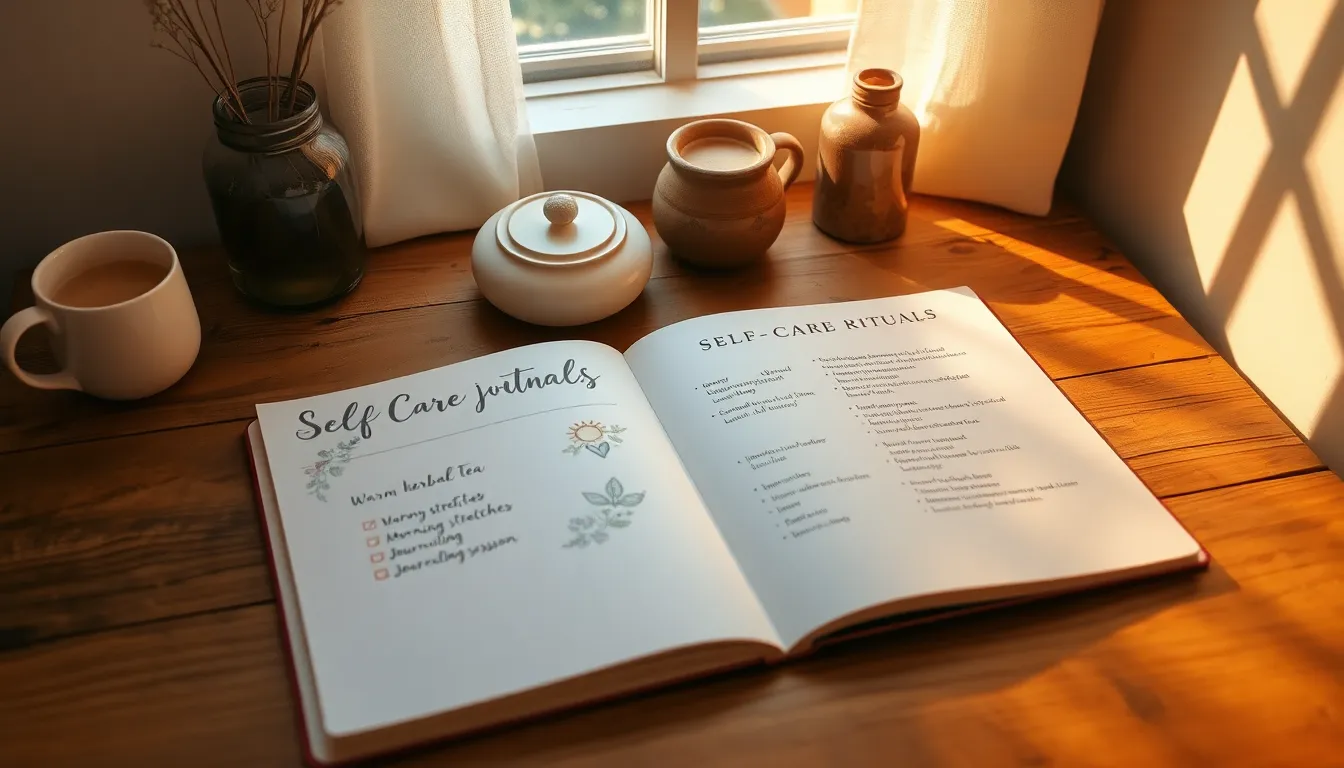In today’s fast-paced world, nurturing your mental and emotional health is more crucial than ever. Creating a self-care journal can be a powerful tool to reflect, unwind, and focus on what truly matters.
By starting your own self-care journal, you’ll unlock a personal space for growth and healing. Dive in to discover practical tips that will help you build a more balanced, mindful routine.
Select Your Journal Style

Identifying your journal style helps tailor your self-care practice. Choose between a structured or free-form approach to match your personal preference. Structured journals offer prompts for guidance, while free-form allows spontaneous expression.
Begin with simple prompts to ease into your style. For structured journaling, try:
- What brings me joy today?
- How can I be kinder to myself?
For free-form, let thoughts flow without restrictions. Both styles nurture self-discovery and emotional release.
Set Clear Self-Care Goals

Define your self-care goals by identifying what truly nurtures you. Be specific to make them actionable. Consider using prompts like:
- What self-care activity recharges me the most?
- How will I feel after prioritizing this today?
Write down these goals, and revisit them weekly to track progress and adjust as needed. Celebrate small wins to stay motivated and compassionate toward yourself.
Create a Cozy Writing Space

To create a cozy writing space, prioritize comfort. Select a quiet corner with soft lighting and a comfortable chair to encourage relaxation. Add personal touches like a favorite blanket or scented candle to enhance the atmosphere.
Incorporate specific journaling prompts to inspire creativity.
- “What am I grateful for today?”
- “How can I nurture myself this week?”
These prompts anchor your practice, making it a rewarding self-care ritual.
Incorporate Mindful Prompts

Start your journaling session with a mindful prompt to center your thoughts. Try asking, “What am I grateful for today?” or “How can I nurture myself this week?” These questions encourage reflection and growth.
Another effective approach is to focus on positive affirmations. Write down statements like “I am resilient” or “I deserve peace.” This practice reinforces self-love and promotes mental clarity.
Review and Reflect Regularly

Set aside time each week to review past entries. This helps track progress and identify patterns. Reflect on what you’ve learned and how you feel, fostering growth and self-awareness.
Use prompts like:
- “What am I grateful for this week?”
- “What challenges did I face, and how did I overcome them?”
These guide deeper reflection and insight.
Conclusion: Creating Beautiful Outdoor Spaces
In crafting a self-care journal, you’ve explored five pivotal relationship concepts: fostering self-awareness, nurturing self-love, setting healthy boundaries, practicing gratitude, and reflecting on personal growth. These elements serve as the foundation for building strong, fulfilling relationships. By recording your thoughts and feelings, you create a meaningful dialogue with yourself, allowing you to approach your interactions with others more authentically and compassionately.
As your next step, take just ten minutes today to jot down your thoughts and emotions in your new self-care journal. This small commitment can lead to profound insights, helping you to better understand and improve your relationships.
Remember to save or bookmark this article so you can revisit these vital concepts whenever you need guidance or a gentle reminder. As you journey forward, equipped with your self-care journal, envision a future where your relationships flourish, anchored by the insights and clarity you’ve gained. Empower yourself today to nurture not only your relationship with others but, more importantly, with yourself. Your commitment to self-care is the first step toward lasting relationship success.


